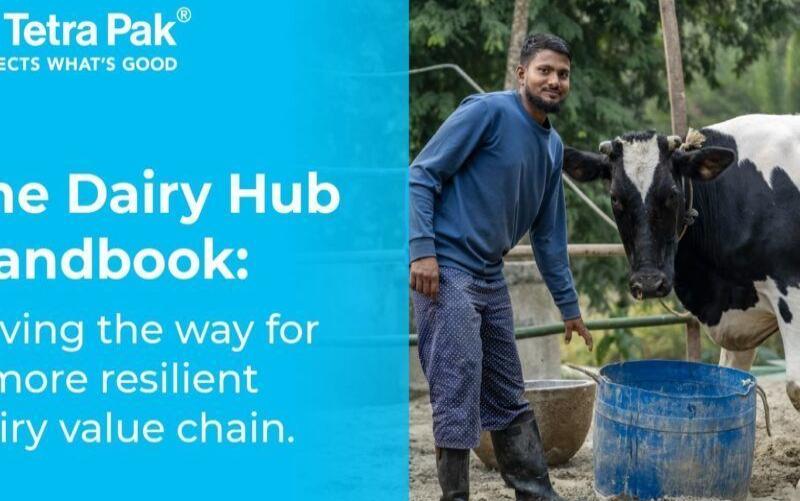Tetra Pak Unveils Dairy Hub Handbook for Food Security
Sourse: www.dairyindustries.com
Tetra Pak releases a comprehensive Dairy Hub handbook to strengthen global dairy value chains, offering practical solutions for food security and nutrition ahead of World Milk Day.

Tetra Pak has introduced a new Dairy Hub handbook, underscoring its commitment to consolidating the dairy value chain as part of a drive to tackle food security and nutrition challenges.
Released ahead of World Milk Day on June 1st, the handbook presents a detailed guide to the Dairy Hub model, showcasing its setup and potential economic and nutritional benefits. The Dairy Hub model aims to link smallholder farmers with dairy processors, thereby promoting the supply of quality milk and reducing food loss.
Lars Holmquist, Executive Vice President at Tetra Pak, stressed the handbook's contribution to realizing United Nations Sustainable Development Goals by improving the profitability of subsistence farming. "With a population expected to reach nearly 10 billion by 2050, the dairy industry is vital for global nutrition," he remarked, pointing out that one billion people's livelihoods are connected to the dairy industry, particularly in low-income countries where there are approximately 238 dairy farms per 10,000 people. Tatiana Liceti, Market Operations Executive Vice President at Tetra Pak, echoed this sentiment, noting that a robust dairy sector supports economic growth and sustainable diets, potentially boosting GDP and job creation.
The Dairy Hub projects, ongoing since 2011, have supported 84,500 farmers globally, enhancing productivity and profits. Highlighting successful Dairy Hub projects, the handbook outlines significant achievements in Kenya, Bangladesh, and Colombia, detailing improvements in milk production, income for farmers, and local economic development. For instance, Bangladesh saw a 42% rise in milk production between 2021 and 2024, bolstering farmers' income by 56%. Tetra Pak's continued collaboration with NGOs and international agencies remains pivotal in expanding these initiatives.
The Dairy Hub handbook is accessible online, inviting more stakeholders to join the efforts in fortifying the dairy value chain worldwide.
Released ahead of World Milk Day on June 1st, the handbook presents a detailed guide to the Dairy Hub model, showcasing its setup and potential economic and nutritional benefits. The Dairy Hub model aims to link smallholder farmers with dairy processors, thereby promoting the supply of quality milk and reducing food loss.
Lars Holmquist, Executive Vice President at Tetra Pak, stressed the handbook's contribution to realizing United Nations Sustainable Development Goals by improving the profitability of subsistence farming. "With a population expected to reach nearly 10 billion by 2050, the dairy industry is vital for global nutrition," he remarked, pointing out that one billion people's livelihoods are connected to the dairy industry, particularly in low-income countries where there are approximately 238 dairy farms per 10,000 people. Tatiana Liceti, Market Operations Executive Vice President at Tetra Pak, echoed this sentiment, noting that a robust dairy sector supports economic growth and sustainable diets, potentially boosting GDP and job creation.
The Dairy Hub projects, ongoing since 2011, have supported 84,500 farmers globally, enhancing productivity and profits. Highlighting successful Dairy Hub projects, the handbook outlines significant achievements in Kenya, Bangladesh, and Colombia, detailing improvements in milk production, income for farmers, and local economic development. For instance, Bangladesh saw a 42% rise in milk production between 2021 and 2024, bolstering farmers' income by 56%. Tetra Pak's continued collaboration with NGOs and international agencies remains pivotal in expanding these initiatives.
The Dairy Hub handbook is accessible online, inviting more stakeholders to join the efforts in fortifying the dairy value chain worldwide.
Key News of the Week











